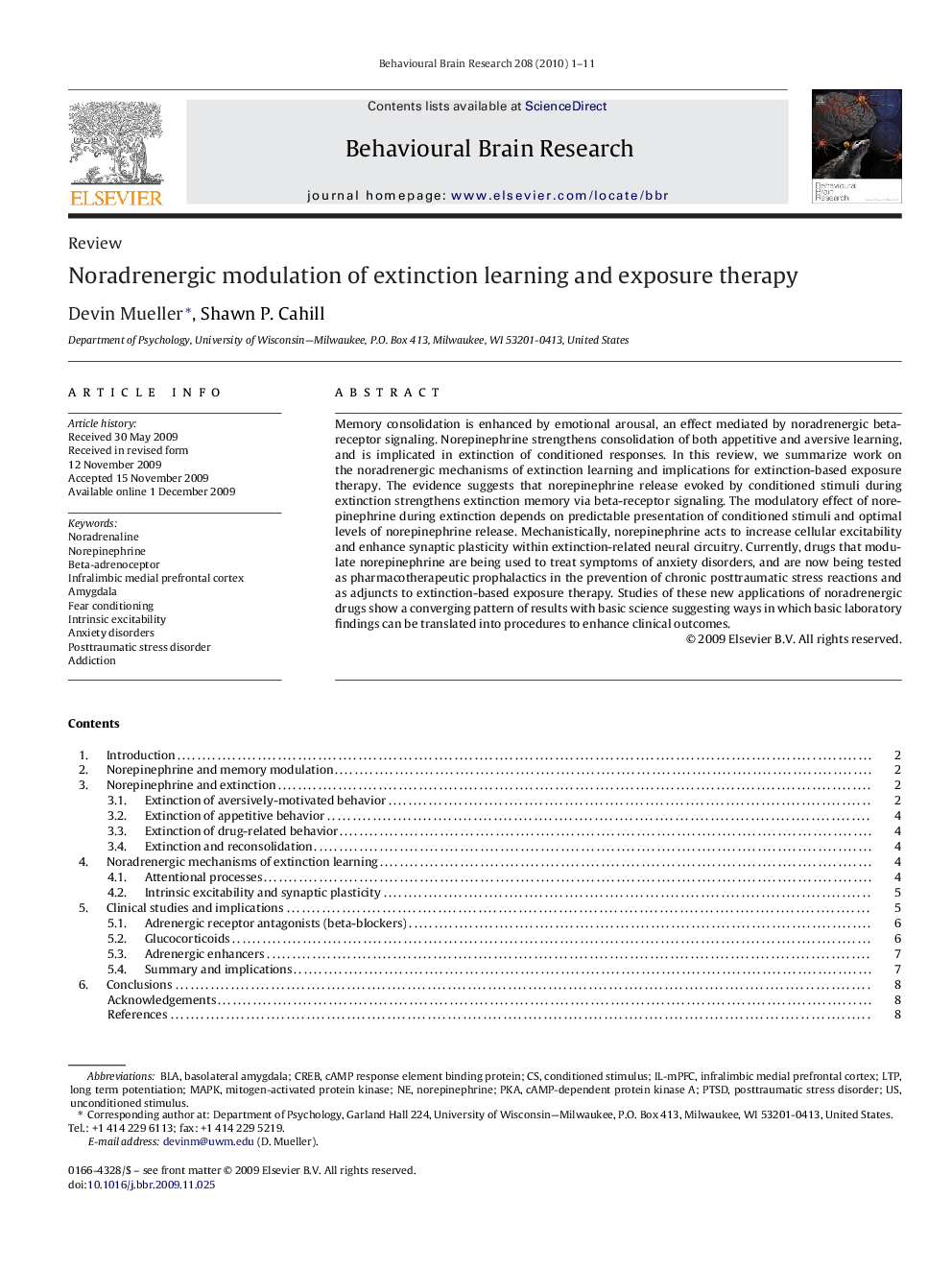| Article ID | Journal | Published Year | Pages | File Type |
|---|---|---|---|---|
| 4314270 | Behavioural Brain Research | 2010 | 11 Pages |
Memory consolidation is enhanced by emotional arousal, an effect mediated by noradrenergic beta-receptor signaling. Norepinephrine strengthens consolidation of both appetitive and aversive learning, and is implicated in extinction of conditioned responses. In this review, we summarize work on the noradrenergic mechanisms of extinction learning and implications for extinction-based exposure therapy. The evidence suggests that norepinephrine release evoked by conditioned stimuli during extinction strengthens extinction memory via beta-receptor signaling. The modulatory effect of norepinephrine during extinction depends on predictable presentation of conditioned stimuli and optimal levels of norepinephrine release. Mechanistically, norepinephrine acts to increase cellular excitability and enhance synaptic plasticity within extinction-related neural circuitry. Currently, drugs that modulate norepinephrine are being used to treat symptoms of anxiety disorders, and are now being tested as pharmacotherapeutic prophalactics in the prevention of chronic posttraumatic stress reactions and as adjuncts to extinction-based exposure therapy. Studies of these new applications of noradrenergic drugs show a converging pattern of results with basic science suggesting ways in which basic laboratory findings can be translated into procedures to enhance clinical outcomes.
